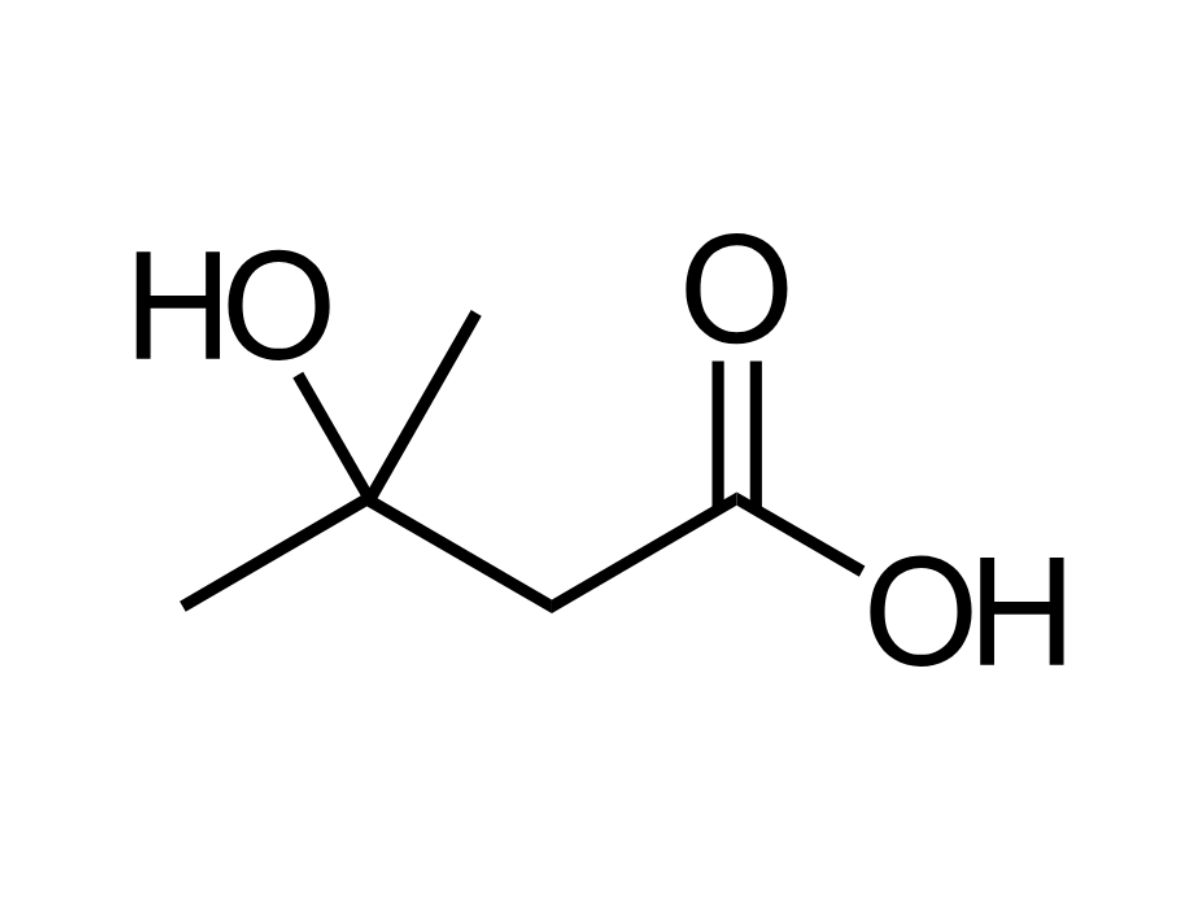
Beta-Hydroxy Beta-Methylbutyric Acid (HMB) is a compound that has gained attention in the fitness and health community. What is HMB? HMB is a metabolite of the amino acid leucine, which plays a crucial role in muscle metabolism. Why should you care about HMB? It helps reduce muscle breakdown, supports muscle growth, and enhances recovery after intense workouts. Whether you're an athlete, bodybuilder, or just someone looking to stay fit, understanding HMB can be a game-changer. This article will dive into 20 fascinating facts about Beta-Hydroxy Beta-Methylbutyric Acid that will help you understand its benefits, uses, and potential side effects. Get ready to learn how HMB can support your fitness goals!
What is Beta-Hydroxy Beta-Methylbutyric Acid?
Beta-Hydroxy Beta-Methylbutyric Acid, commonly known as HMB, is a compound produced in the body from the amino acid leucine. It has gained popularity in the fitness and health community for its potential benefits in muscle growth and recovery.
-
HMB is a metabolite of leucine. Leucine is an essential amino acid, meaning the body cannot produce it on its own. HMB is created when leucine is broken down in the body.
-
HMB was discovered in the 1950s. Scientists first identified HMB in the 1950s, but its potential benefits weren't explored until the 1990s.
-
HMB can be found in small amounts in certain foods. Foods like grapefruit, alfalfa, and catfish contain trace amounts of HMB.
Benefits of HMB
HMB is often marketed for its potential benefits in muscle health and athletic performance. Here are some key benefits supported by research.
-
HMB helps reduce muscle breakdown. Studies show that HMB can decrease muscle protein breakdown, which is beneficial for muscle maintenance.
-
HMB supports muscle growth. Research indicates that HMB can enhance muscle protein synthesis, leading to increased muscle mass.
-
HMB improves recovery after exercise. Athletes taking HMB have reported less muscle soreness and faster recovery times.
-
HMB may enhance strength. Some studies suggest that HMB supplementation can lead to greater strength gains during resistance training.
How to Use HMB
Understanding how to use HMB effectively can help maximize its benefits. Here are some guidelines.
-
HMB is available in different forms. You can find HMB in free acid form or as a calcium salt. Both forms are effective, but the free acid form may be absorbed more quickly.
-
Typical dosage ranges from 3 to 6 grams per day. Most studies use a daily dose of 3 grams, but some suggest up to 6 grams for enhanced benefits.
-
HMB can be taken with or without food. It is versatile and can be consumed at any time of the day, with or without meals.
Safety and Side Effects
Like any supplement, it's important to understand the safety and potential side effects of HMB.
-
HMB is generally considered safe. Research indicates that HMB is safe for most people when taken at recommended doses.
-
Few side effects have been reported. Some users may experience mild gastrointestinal issues, but these are rare.
-
Long-term safety is still being studied. While short-term use appears safe, more research is needed to confirm long-term safety.
Who Can Benefit from HMB?
HMB isn't just for bodybuilders. Various groups can benefit from its muscle-preserving properties.
-
Elderly individuals may benefit from HMB. HMB can help prevent muscle loss in older adults, improving their overall health and mobility.
-
Athletes can use HMB for performance enhancement. Both endurance and strength athletes may see performance improvements with HMB supplementation.
-
People recovering from surgery or illness. HMB can help maintain muscle mass during periods of inactivity or recovery.
HMB in Research
Ongoing research continues to explore the potential of HMB in various health contexts.
-
HMB is being studied for its effects on heart health. Preliminary research suggests HMB may have cardiovascular benefits.
-
HMB and cancer. Some studies are investigating whether HMB can help prevent muscle wasting in cancer patients.
-
HMB and obesity. Research is exploring if HMB can aid in weight loss and improve body composition in obese individuals.
-
HMB and cognitive function. Emerging studies are looking at the potential cognitive benefits of HMB, particularly in aging populations.
The Final Scoop on HMB
Beta-Hydroxy Beta-Methylbutyric Acid, or HMB, plays a significant role in muscle health and performance. This compound, naturally produced in our bodies, helps reduce muscle breakdown and supports muscle growth. Athletes and fitness enthusiasts often use HMB supplements to enhance their training results.
Research shows HMB can improve muscle mass, strength, and recovery. It’s especially beneficial for older adults, helping maintain muscle function and overall health. While HMB supplements are generally safe, it’s always wise to consult a healthcare professional before starting any new supplement regimen.
Understanding HMB’s benefits and potential can help you make informed decisions about your fitness and health goals. Whether you’re an athlete or just looking to stay active, HMB might be a valuable addition to your routine. Stay informed, stay healthy, and keep pushing towards your goals.
Was this page helpful?
Our commitment to delivering trustworthy and engaging content is at the heart of what we do. Each fact on our site is contributed by real users like you, bringing a wealth of diverse insights and information. To ensure the highest standards of accuracy and reliability, our dedicated editors meticulously review each submission. This process guarantees that the facts we share are not only fascinating but also credible. Trust in our commitment to quality and authenticity as you explore and learn with us.


